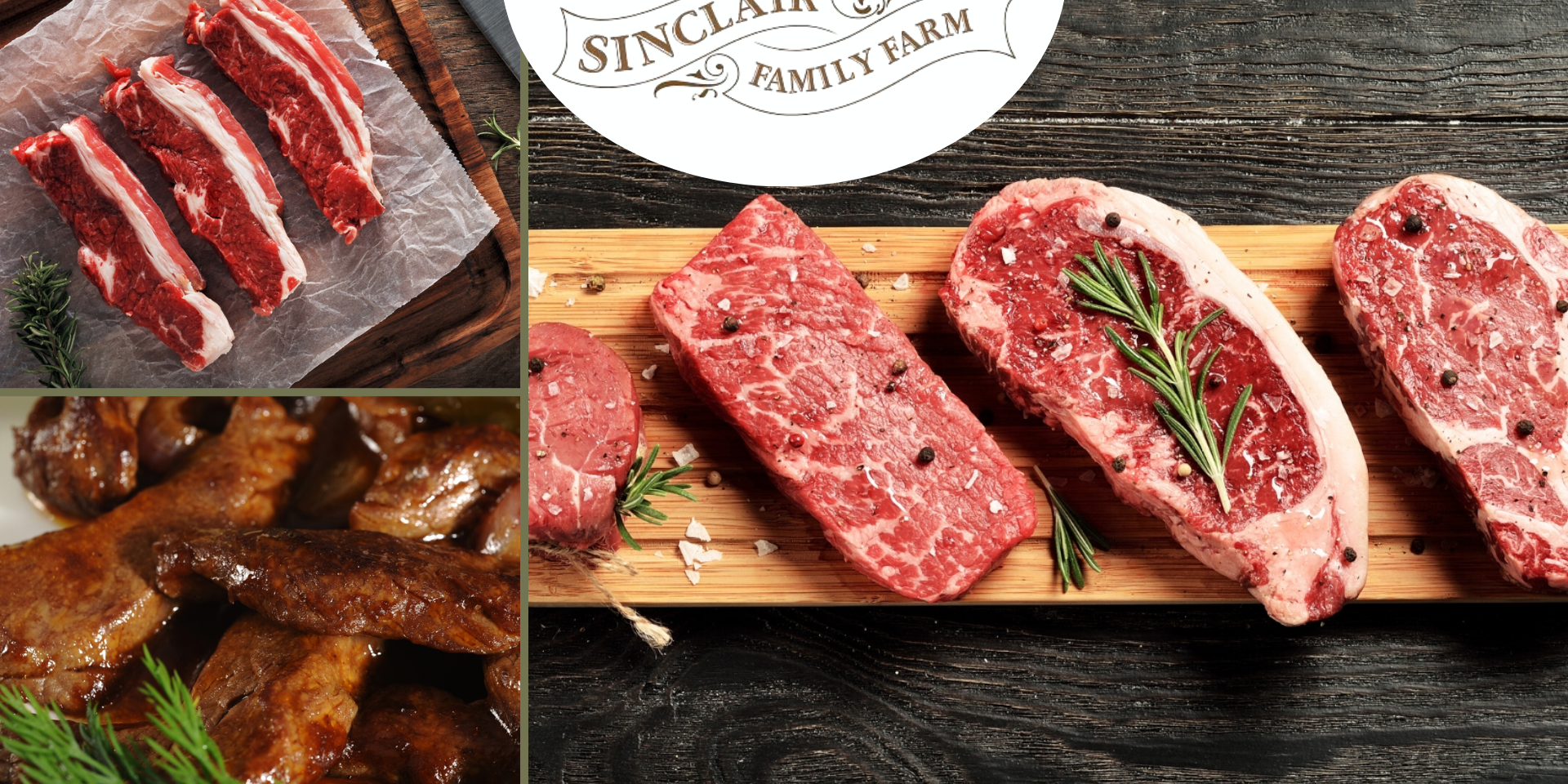Sinclair Family Farm
Sinclair Family Farm has been part of the Farm-to-Table movement, and its mission statement shows. “We are an economically and environmentally profitable sheep and poultry business. We seek to serve their local community by providing local food and supporting youth to get involved in agriculture”.
Before becoming the owner and visionary of Carson Valley Meats, Karin Sinclair started her agriculture journey in Placer County. The family became involved in sheep raising in 1998 when their daughter chose sheep for her 4H project. They still have their original breed of Registered Dorset sheep and have added some Hampshire sheep for breeding. Additionally, they have cattle, mainly Angus, with some Herefords mixed in.
In August 2009, they purchased CC Family Farms and began their adventure with eggs. Starting with the original 450 laying hens, they have added layers to the flock and have also added meat birds. When mature enough, the birds head out to pasture where they can graze on grasses fed by Mother Nature herself!
In 2011, pasture-raised pork was added to fill a void in local food markets. This type of product wasn’t available at the time but now everyone has access to healthy meat options! Karin loves hosting farm-day events to share the farm. Doing this helps her share her excitement and their experience of raising cattle, sheep, and chickens.
Farm-To-Table History
While the Farm-to-Table movement may seem like a recent trend, it has a rich history that dates back centuries. In this blog post, we’ll explore the origins of the Farm-to-Table movement and its evolution over time.
The origins of the Farm-to-Table movement can be traced back to ancient times. It started when people grew their own food or bought it from local farmers. For centuries, people have relied on small-scale agriculture to produce food and feed their families. The industrial revolution in the 19th century, however, led to the rise of large-scale agriculture and food production.
In the early 20th century, there was a growth in concerns about the health and safety of the food supply. This led to government regulations and food safety standards. While these regulations helped improve the safety of the food supply, they also had unintended consequences. This further promoted the industrialization of food production.
According to Advanced Biotech, the Farm-to-Table movement surfaced in the 1960s and 1970s as part of a cultural shift toward natural and organic foods. People were becoming more aware of the negative environmental and health impacts of industrial agriculture. Many began to seek healthier and more sustainable alternatives.
Direct-to-Consumer Methods
Alice Waters, a pioneer of the modern Farm-to-Table movement, opened Chez Panisse in Berkeley, California in 1971. Chez Panisse was one of the first restaurants to source ingredients directly from local farmers. Its success helped popularize the Farm-to-Table approach among chefs and consumers.
In the 1980s and 1990s, the Farm-to-Table movement continued to gain momentum. Small-scale farmers, food artisans, and chefs began to collaborate closely to create new markets for local and sustainably produced food. Farmers’ markets, community-supported agriculture programs, and other direct-to-consumer models became more popular. Many restaurants even began to feature locally sourced ingredients on their menus.
Getting food from the fields onto your tables isn’t a job that farmers and ranchers do alone. Most people could probably tell you where a jar of honey or jam in their kitchen came from or may have some fruits or veggies, they grew themselves. Yet, most people are unaware of the thoughtful work and dedication it takes to raise animals to provide high-quality meats. Be sure to learn more about Farm-to-Table in Nevada in our Food Brings Everyone to The Table blog!
Historic Storke Dairy
In 2019, Karin bought the historic Storke Dairy on Centerville Lane in Gardnerville. After purchasing it, Karin cleaned up and revived the old dairy to make it a working ranch again. You can learn more about this adventure in our Reviving the Former Glory of the old Storke Dairy blog. At the dairy, she raises Nevada-fed beef, pigs, goats, and sheep, along with chickens. Currently, Sinclair Family Farm is selling directly from the farm in individual cuts frozen and vacuum packed. They also sell their beef, lamb, and pork in half or whole. Eggs are sold by the carton, as well as flats, and cases. You can find Sinclair Family Farm products at local Farmers’ Markets, as well as Carson Valley Meat’s Ranch Box orders.
Also, because their animals have been raised as naturally as possible their meat is higher in essential nutrients like Omega 3 fatty acids and has high levels of conjugated linoleic acid. Be sure to check out some of their delicious options available for your next Ranch Box Order, like their pasture-raised filet mignon, grass-fed ground beef, lamb chops, pork breakfast sausage, Ham Hock, and much more! For any questions, you can contact Karin by phone at (916) 803-1777 or by email karin@sinclairfamilyfarm.net.

